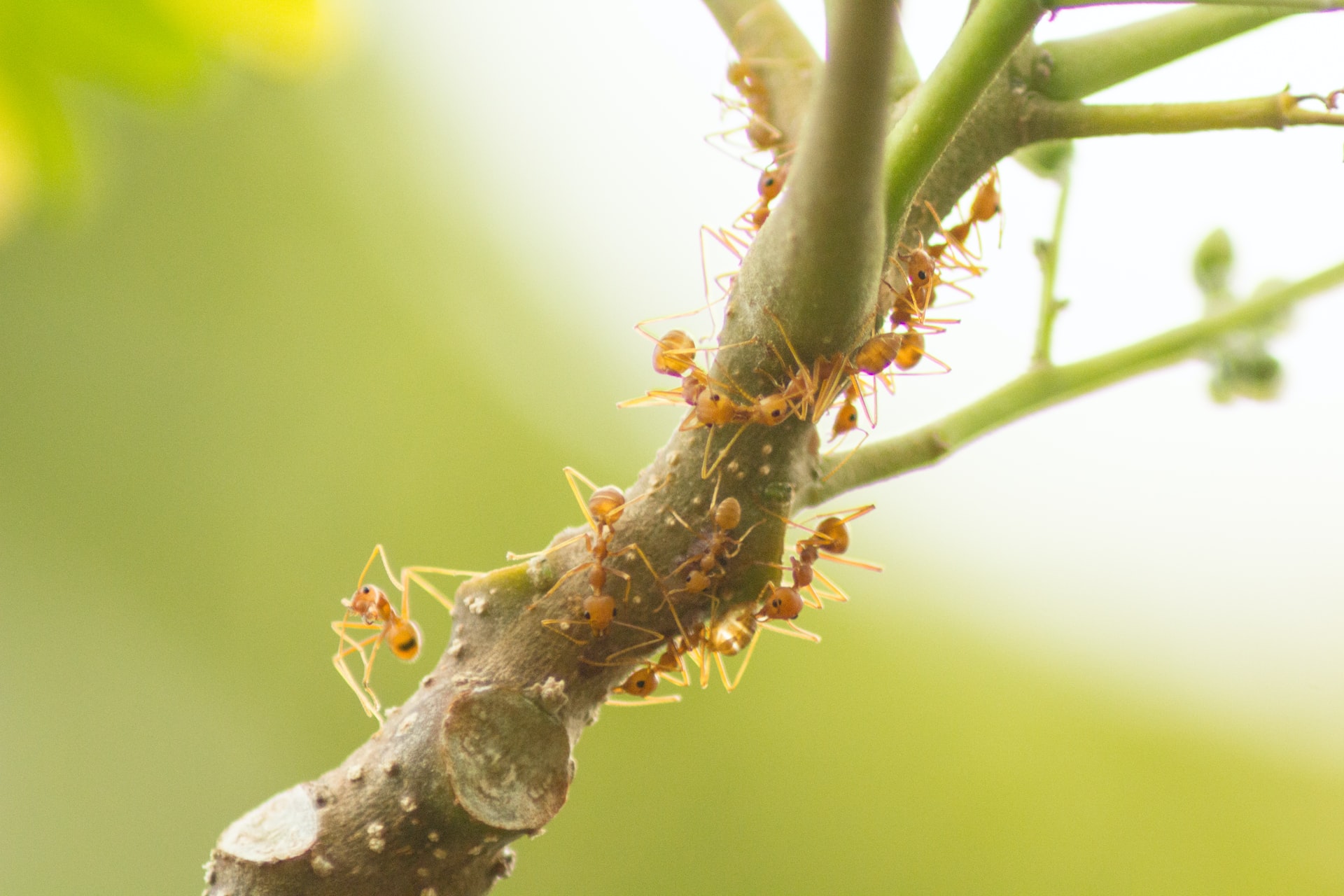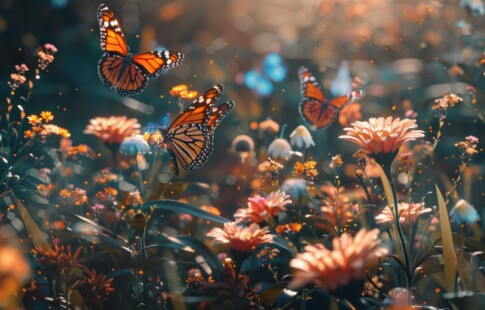
The Best Ways to Avoid Bugs in Your Garden: 5 Natural Tips and Tricks
We are reader-supported. When you buy through links on our site, we may earn affiliate commission.
Rampant pests are enough to ruin any avid gardener’s day when they infest flowers, vegetables, fruits and herbs. What are the best ways to avoid bugs in your garden?
With synthetic pesticide exposure’s known effects on health and the environment — one study showed a nearly 71% decline in beneficial pollinators after pesticide use and reduced soil quality and runoff pollution — finding natural methods to control unwanted visitors in your garden is essential.
Unfortunately, standard preventative techniques to avoid bugs aren’t as effective as you think. For example, citronella products may ward off mosquitoes for two hours before the oils evaporate, while candles only decrease mosquito bites by half.
However, there may be other tips and tricks worth trying to get rid of garden pests naturally.
1. Sprinkle Cinnamon
There are probably ants wherever there are aphids, but thankfully, cinnamon may be the answer.
Cinnamon contains cinnamaldehyde — the active ingredient in cinnamon oil — which studies indicate is effective in repelling ants and mealy bugs.
Ants communicate using sensitive sensor pathways, such as vision, taste, smell, and hearing — however, cinnamon’s potency obstructs some of these receptors and sends the ants scattering. Considering cinnamaldehyde is natural and safe for plants, researchers encourage its inclusion in the Integrated Pest Management (IPM) Program.
Aphids are attracted to sunflowers and several types of herbs and vegetables — and ants love the honeydew substance aphids produce while feeding. If ants have taken over your garden, sprinkle cinnamon around the base of the infested plant. You could also spray cinnamon water on the soil and leaves.
2. Spray Leaves With Neem Oil
Neem oil derives from neem tree seeds and is a natural and effective insecticide solution for leaf miners, mites, aphids, beetles, whiteflies and fungi. You can make neem oil solution at home or purchase it at a garden center — however, there’s a trick to using it correctly.
Monitoring the pests’ lifecycles is essential when using neem, especially since adult insects are unlikely to be affected immediately by the oil. For the best results, spray neem oil on immature insects — it will coat their bodies and block their airways, resulting in suffocation.
You should also never apply neem oil on its own to prevent burning your plants’ leaves. Instead, mix a couple of tablespoons of neem oil with one gallon of water and a little dish detergent — then pour the solution into a spray bottle. You may find that several applications are needed for neem oil to rid your plants of pesky insects.
4. Companion Planting
The Native Americans have long used companion planting for the “three sisters” — corn, beans, and squash — and the agriculture sector continues to implement this technique for large-scale cultivation.
Companion planting is an excellent way to safeguard your garden from bugs. The idea behind companion planting is simple enough — you should grow plant species with known favorable relationships within a few rows of each other. This method works particularly well in vegetable and herb gardens.
The Farmer’s Almanac suggests companion planting the following fruits and vegetables for optimal yields and pest control:
- Tomatoes: Plant them next to basil or marigolds to prevent flies, mosquitoes, and nematodes.
- Oregano: An excellent companion for any plant and deters aphids best.
- Lavender: Grow next to cabbage and cauliflower to ward off moths and attract pollinators.
- Onions: Repels the carrot fly and aphids from carrots, lettuce, beets, and tomatoes.
When gardeners practice trap planting, they save the main crops by planting a companion with a strong odor to entice harmful pests to it instead.
4. Attract Birds
Attracting beneficial birds to your garden is another excellent way to avoid bugs.
Although research is limited, one study suggests that birds consume the biomass of 400 million tons of insects. Even a swallow can eat up to 1,000 leafminers in about 12 hours.
You can do a few things to attract insect-eating birds to your garden. For starters, ensure your garden includes places birds can hide or nest, such as small trees and shrubbery.
A bird bath or outdoor fountain will also attract birds looking to cool down or have a drink. Otherwise, bird feeders with a quality seed blend will draw many insect-eating birds to your property.
5. Build a Greenhouse
Greenhouses are attractive garden features — and while they’re not entirely effective at keeping pests at bay, they may help in some circumstances.
Companion planting is equally vital in greenhouses as it is in garden beds since pests, including small rodents, can still find their way inside. The trick, of course, is to prevent infestations before they occur.
Placing a screen in front of every window, door, and vent hole is the first step to stopping rodents and snails from getting inside. Other measures might include washing your gardening tools, reducing excess moisture, and changing your shoes before entering your greenhouse.
Additionally, attracting ladybugs to your greenhouse is another way to eliminate aphids and mites. Plant dill, daisies and yarrow to lure ladybugs inside your greenhouse.
Avoiding Bugs in Your Garden Takes Effort
Even the best ways to avoid bugs in your garden take a little effort and patience. Pests are easy to attract and difficult to get rid of, but by trying these five tips, you’re likely to gain better control over your insect infestations.
Share on
Like what you read? Join other Environment.co readers!
Get the latest updates on our planet by subscribing to the Environment.co newsletter!
About the author
Rachel Lark
Rachel serves as the Assistant Editor of Environment.co. A true foodie and activist at heart, she loves covering topics ranging from veganism to off grid living.





